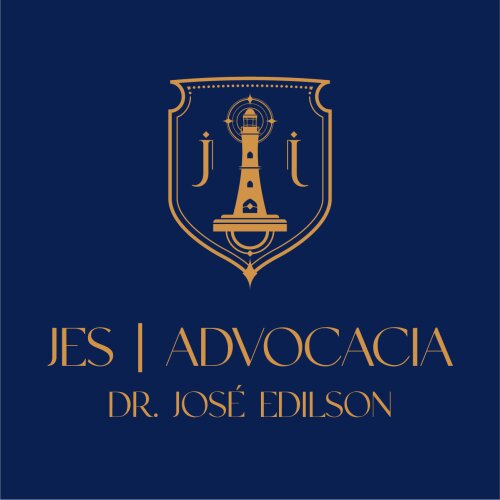Best Family Lawyers in Santo Andre
Share your needs with us, get contacted by law firms.
Free. Takes 2 min.
Free Guide to Hiring a Family Lawyer
List of the best lawyers in Santo Andre, Brazil
About Family Law in Santo Andre, Brazil
Family law in Santo Andre, Brazil, covers a broad range of issues involving family relationships, such as marriage, divorce, child custody, adoption, alimony, property division, and guardianship. Governed primarily by the Brazilian Constitution and the Civil Code, family law ensures the protection of family members, especially children, and aims to resolve conflicts while maintaining the best interests of the family unit. In Santo Andre, these matters are handled by the city's Family Court (Vara da Família), which provides judicial support and legal processes for families residing in the municipality.
Why You May Need a Lawyer
Many situations can arise where the assistance of a specialized family law lawyer is not only helpful but often essential. Common reasons for seeking legal advice include:
- Divorce proceedings and legal separation
- Child custody, visitation rights, and child support disputes
- Alimony and spousal support negotiations
- Division of assets and debts following a separation
- Elaboration and enforcement of prenuptial and postnuptial agreements
- Adoption processes and disputes over parental rights
- Guardianship issues over minors or disabled family members
- Domestic violence protection orders
- Recognition or challenge of paternity
- Mediation and family conciliation procedures
An experienced family lawyer in Santo Andre can guide you through these processes, ensure that your rights are protected, and help you navigate local courts and administrative procedures.
Local Laws Overview
Brazilian family law is regulated mainly by the Federal Constitution, the Civil Code (Law No. 10.406/2002), and specific statutes such as the Statute of Children and Adolescents (ECA) and the Maria da Penha Law, which protects against domestic violence. Key aspects relevant to Santo Andre include:
- Marriage and Stable Union: Both formal marriages and stable unions (união estável) are recognized and grant similar rights regarding property, inheritance, and family benefits.
- Divorce: Divorce can be consensual or contested. Consensual divorce may often be resolved administratively if there are no minors involved.
- Child Custody and Support: Custody arrangements prioritize the best interests of the child, and child support is obligatory regardless of marital status.
- Alimony: Spousal support may be granted when one partner is financially dependent, typically for a limited time following separation.
- Property Division: The distribution of assets is determined by the marital property regime adopted at the time of marriage or stable union.
- Adoption: Adoption procedures require judicial approval and a thorough evaluation to ensure the welfare of the child.
- Protection Orders: Victims of domestic violence can seek urgent legal protection and may access specialized support services.
The Family Court (Vara da Família) of Santo Andre is the local judicial body responsible for handling these disputes, providing both legal decision-making and conciliation services.
Frequently Asked Questions
What is the difference between marriage and stable union in Brazil?
Marriage is a formal legal contract, while stable union (união estável) is an informal, recognized partnership between two people living as a family. Both confer similar rights regarding property, inheritance, and family benefits.
How long does a divorce process usually take in Santo Andre?
The duration depends on whether the divorce is consensual or contested. Consensual divorces without children or disputes can be finalized within a few weeks, often through a notary. Contested divorces or those involving minor children may take several months to a year.
Who gets custody of the children after separation?
Brazilian law gives preference to shared custody, provided it serves the best interests of the child. However, custody may be granted solely to one parent when necessary for the child's well-being.
Can grandparents seek visitation rights?
Yes. Grandparents may request visitation rights in Family Court if it is deemed beneficial for the child's upbringing.
How is child support calculated?
Child support is determined based on the financial capacity of the paying parent and the needs of the child. The percentage may vary, but a judge will always prioritize the child's best interests.
What protections exist against domestic violence?
Victims of domestic violence are protected by the Maria da Penha Law. They can seek urgent protection orders and access shelters and psychological support provided by local agencies.
What is the process for adopting a child in Santo Andre?
The adoption process begins with registering at the local Family Court. It involves home visits, interviews, assessments, and ultimately a judicial decision to ensure the child's safety and well-being.
Can I get divorced at a notary office?
Yes, if both parties agree on all terms and there are no minor or dependent children involved, consensual divorce can be processed at a notary office in Santo Andre.
Do I need a lawyer to file for divorce or custody?
Yes. Brazilian law requires legal representation for most family cases, especially contested matters or when minor children are involved.
How is property divided during a divorce?
Property division is based on the marital property regime chosen, such as community property or separation of assets. In most cases, assets acquired during marriage are shared equally.
Additional Resources
For those seeking support or more information about family law in Santo Andre, the following resources can be helpful:
- Defensoria Pública do Estado de São Paulo - Offers free legal aid for low-income residents in family disputes and other matters.
- Vara da Família de Santo Andre - The city's Family Court, responsible for processing all family law cases.
- CREAS Santo Andre - Specialized Reference Center for Social Assistance, providing support for women and families facing violence.
- OAB Santo Andre - The local Bar Association, which can assist in locating qualified family law attorneys.
- Conselho Tutelar - The Child Protection Council, especially for issues related to child safety and welfare.
Next Steps
If you need legal advice or assistance with a family law matter in Santo Andre, consider the following steps:
- Organize all relevant documents related to your case, such as marriage certificates, birth certificates, financial records, and any previous court decisions.
- Contact a qualified family law attorney in Santo Andre to schedule a consultation and discuss your situation.
- If you cannot afford a private lawyer, inquire about free or subsidized legal aid through the Defensoria Pública or the local Bar Association (OAB).
- Follow your lawyer's guidance and gather any additional information or documentation required to support your case.
- Attend all scheduled meetings and court hearings, and communicate openly with your legal representative to ensure the best possible outcome for your family.
Seeking professional legal support early can help resolve your family law matters more efficiently and with greater peace of mind.
Lawzana helps you find the best lawyers and law firms in Santo Andre through a curated and pre-screened list of qualified legal professionals. Our platform offers rankings and detailed profiles of attorneys and law firms, allowing you to compare based on practice areas, including Family, experience, and client feedback.
Each profile includes a description of the firm's areas of practice, client reviews, team members and partners, year of establishment, spoken languages, office locations, contact information, social media presence, and any published articles or resources. Most firms on our platform speak English and are experienced in both local and international legal matters.
Get a quote from top-rated law firms in Santo Andre, Brazil — quickly, securely, and without unnecessary hassle.
Disclaimer:
The information provided on this page is for general informational purposes only and does not constitute legal advice. While we strive to ensure the accuracy and relevance of the content, legal information may change over time, and interpretations of the law can vary. You should always consult with a qualified legal professional for advice specific to your situation.
We disclaim all liability for actions taken or not taken based on the content of this page. If you believe any information is incorrect or outdated, please contact us, and we will review and update it where appropriate.
Browse family law firms by service in Santo Andre, Brazil
Santo Andre, Brazil Attorneys in related practice areas.














